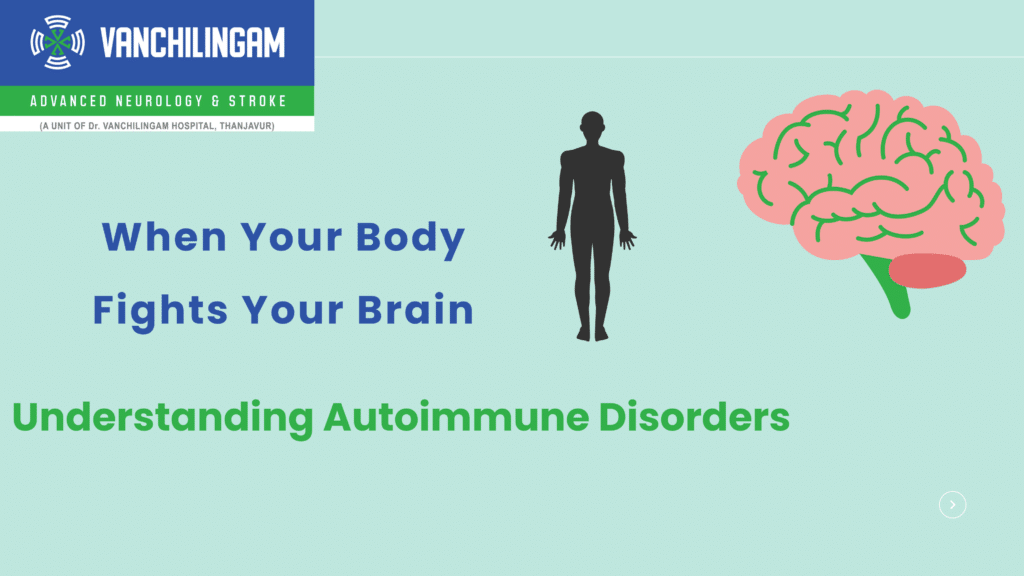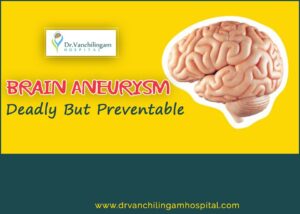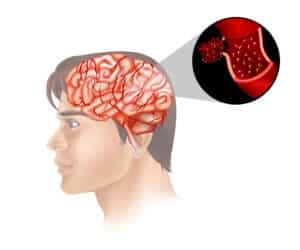Hello! Today, we will delve into a fascinating and complex condition called autoimmune encephalitis. In this disorder, your immune system mistakenly attacks your brain tissue. Understanding what this means, how it can affect you, and the best ways to manage it is essential.
What Is Autoimmune Encephalitis?
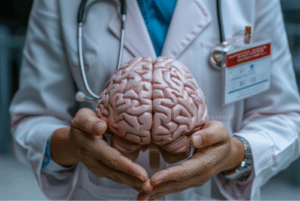
Autoimmune encephalitis is a severe and potentially life-threatening inflammation of the brain caused by an autoimmune response. In simpler terms, your immune system, which protects you from harmful invaders like bacteria and viruses, becomes confused and starts attacking your brain tissue. This disorder falls under the broader category of autoimmune neurological disorders, where the immune system disrupts normal brain function. Unlike other autoimmune brain diseases, autoimmune encephalitis is known for its rapid onset and profound impact on both cognitive and physical abilities.
Understanding Autoimmune Encephalitis Symptoms
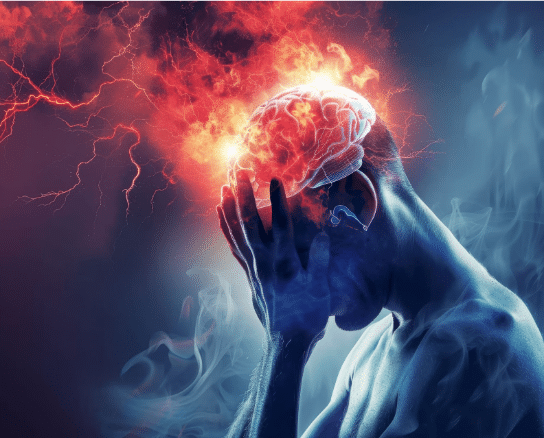
Symptoms of autoimmune encephalitis can vary widely from person to person. Here’s a detailed look at some common symptoms:
- Seizures: Seizures are often one of the first noticeable symptoms of autoimmune encephalitis. They can range from mild to severe and might include convulsions or lapses in consciousness.
- Memory Loss can significantly impact one’s ability to recall recent events or information. One may find it challenging to remember things that happened just a few days ago.
- Confusion: Many patients experience confusion, manifesting as disorientation or difficulty understanding their surroundings. This symptom can be distressing and affect daily activities.
- Behavioural Changes: Sudden and unexplained behavioural changes, such as mood swings or aggression, are common. These changes can be alarming and affect personal relationships.
- Speech Difficulties: Autoimmune encephalitis patients frequently have problems speaking or understanding language. They may need help articulating words or following conversations.
If you’re experiencing any of these symptoms, seeking medical attention is crucial. They are indicative of autoimmune brain disorders and can severely impact your quality of life.
Autoimmune Encephalitis Causes
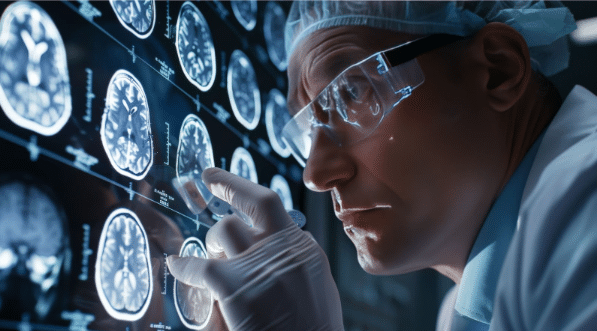
Understanding the causes of autoimmune encephalitis is essential for effective treatment. Here are some potential triggers:
- Infections: Viral infections are a common trigger for autoimmune encephalitis. Certain viruses can initiate an immune response that mistakenly targets the brain.
- Cancer: Some cancers, particularly those in the lungs, have been associated with autoimmune encephalitis. The condition is paraneoplastic encephalitis, where the immune system’s reaction to cancer cells affects the brain.
- Genetic Factors: While not fully understood, genetic predispositions may contribute to susceptibility to autoimmune brain disorders. Certain genetic factors may increase the risk of developing autoimmune encephalitis.
Understanding these causes of autoimmune encephalitis helps in diagnosing and treating the condition effectively. It is also key to identifying the appropriate course of action to manage the disease.
Diagnosing Autoimmune Encephalitis
Accurate diagnosis of autoimmune encephalitis involves a combination of clinical evaluation and diagnostic tests:
- Medical History and Symptoms Review: Your doctor will review your medical history and symptoms to understand the nature and progression of the condition.
- Autoimmune Encephalitis Panel: This panel includes various tests to identify specific antibodies associated with autoimmune encephalitis. It helps in confirming the diagnosis and differentiating it from other conditions.
- Neuroimaging: MRI or CT scans may be used to visualize changes in the brain structure and detect inflammation.
Lumbar Puncture: A lumbar puncture (spinal tap) can be performed to analyze cerebrospinal fluid for signs of inflammation and infection.
Treatment Options for Autoimmune Encephalitis

The treatment of autoimmune encephalitis aims to reduce inflammation, manage symptoms, and address the underlying cause:
- Medications: Corticosteroids like prednisone are commonly used to reduce inflammation. Immunosuppressive drugs such as azathioprine or mycophenolate mofetil may be prescribed to control the immune response.
- Plasma Exchange: In severe cases, plasma exchange (plasmapheresis) can be used to remove harmful antibodies from the blood.
- Intravenous Immunoglobulin (IVIG): This treatment involves infusing immunoglobulins to help modulate the immune system and reduce inflammation.
Supportive Care: Physical therapy, occupational therapy, and speech therapy may be needed to help with recovery and rehabilitation.
Prognosis and Recovery
The prognosis for autoimmune encephalitis can vary depending on the severity of the condition and the response to treatment. Early diagnosis and intervention are crucial for improving outcomes. Many patients experience significant improvement with appropriate treatment, though some may have residual effects.
Facts and Data About Autoimmune Encephalitis
Understanding the scope and impact of autoimmune encephalitis can provide a clearer picture of this condition. Here are some key facts and statistics:
Prevalence and Incidence
Incidence Rates: Autoimmune encephalitis is a relatively rare condition, with an estimated incidence of 1-2 cases per 100,000 people per year. This number can vary depending on the population and region.
Demographics: The condition can affect individuals of all ages but is most commonly diagnosed in young adults and children. Studies suggest that autoimmune encephalitis is slightly more common in women than men.
Types and Variants
Types of Autoimmune Encephalitis: There are several types of autoimmune encephalitis, including anti-NMDA receptor encephalitis, anti-LGI1 encephalitis, and anti-GAD65 encephalitis. Each type is associated with different antibodies and can present with varying symptoms.
Anti-NMDA Receptor Encephalitis:
This is one of the most well-known forms and is often associated with psychiatric symptoms, seizures, and cognitive decline. It has been reported that around 50% of patients with anti-NMDA receptor encephalitis have associated ovarian teratomas, particularly in young women.
Diagnosis and Detection
Diagnostic Challenges: Diagnosing autoimmune encephalitis can be challenging as its symptoms overlap with other neurological and psychiatric disorders. The autoimmune encephalitis panel is a crucial diagnostic tool that tests for specific antibodies related to the condition.
Diagnostic Rate: Studies have shown that timely diagnosis improves prognosis. Early diagnosis and treatment are also associated with better recovery rates. Delays in diagnosis can lead to prolonged symptoms and more severe outcomes.
Treatment and Prognosis
Treatment Options:
The primary treatments for autoimmune encephalitis include corticosteroids, intravenous immunoglobulin (IVIG), plasma exchange, and immunosuppressive drugs. Treatment choice often depends on the specific type of autoimmune encephalitis and the severity of symptoms.
Recovery Rates:
Research indicates that about 60-70% of patients with autoimmune encephalitis experience significant improvement with appropriate treatment. However, some may have residual symptoms or long-term effects.
Long-Term Outlook: The long-term prognosis can vary. While many patients recover well, some may experience ongoing cognitive or behavioural changes. Continuous follow-up and rehabilitation are often necessary.
Impact and Research
Ongoing Research: Current research in autoimmune encephalitis focuses on better understanding the underlying mechanisms, developing more effective treatments, and identifying potential preventive measures. New therapies and early intervention strategies are continually being explored.
Awareness and Advocacy:
Increased awareness of autoimmune encephalitis among healthcare providers and the public can lead to earlier diagnosis and better outcomes. Advocacy efforts are crucial in improving research funding and patient support.
Conclusion:
Autoimmune encephalitis and other autoimmune brain disorders present significant challenges, but understanding these conditions is the first step towards effective management. If you or a loved one is experiencing symptoms, consult a healthcare provider for a thorough evaluation and appropriate care. Early intervention can make a considerable difference in recovery and quality of life. Visit Vanchilingam Advanced Neuro & Stroke Hospital in Chennai for any brain-related problems since we are the best brain hospital in Chennai.


